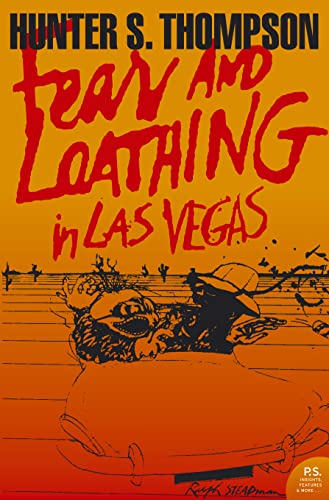Good morning.
You rowed through another weekend! Great job! Not to sound like this person . . .

. . . but keep rowing! It’s all we can do.
If you missed them, Friday’s questions are here. The answers follow today’s announcements and Honor Roll.
Announcements
- Video CLE
I recorded another video the Garage Series this weekend. In it, I share thoughts & tips on complying with the Rules of Professional Conduct during the COVID-19 public health crisis. Each video is approved for ethics CLE:
- Professional Responsibility & COVID-19
- Trust Accounting 1 – Don’t fear, simplify.
- Trust Accounting 2 – Basics (and don’t commingle)
- Sailing the 7 C’s of Legal Ethics
These add up to 2 hours of ethics CLE. Later today, I’m recording Part 3 in the Trust Accounting Series.
- The Championship Match
After two weeks of voting, we are down to the championship match of the inaugural Professional Responsibility & Legal Ethics tournament. Thank you to all who have voted! Most of you have informed me that you’ve based your votes on “which rule/concept is more important?” The finalists:
-
- Candor to the Tribunal: Rule 3.3
- Who decides? Lawyer or Client? Rule 1.2(a)
To vote, go to THE CHAMPIONSHIP.
For a list of results from prior rounds, go here
I’m not sure whether it’s good or bad, but the winner of the My Cousin Vinny bracket did not advance to the championship. Speaking of that bracket, I shed but a brief tear that the collective you preferred “Did you say yutes?” over “Were these MAGIC grits?”
Honor Roll
- Penny Benelli, Dakin & Benelli
- Alberto Bernabe, Professor, John Marshall Law School
- Honorable John M. Conroy, United States Magistrate Judge, District of Vermont
- Beth DeBernardi, Administrative Law Judge, VT Dept. of Labor
- Erin Gilmore, Ryan Smith & Carbine
- Laura Gorsky, Esq.
- Robert Grundstein, Esq.
- Tammy Heffernan, Esq.
- Keith Kasper, McCormick, Fitzpatrick, Kasper & Burchard
- John Leddy, McNeil Leddy & Sheahan
- Tom Little, Little & Cicchetti
- Kevin Lumpkin, Sheehey Furlong & Behm
- Jeffrey Messina, Bergeron Paradis Fitzpatrick
- Hal Miller, First American
- Herb Ogden, Esq.
- Jim Runcie, Ouimette & Runcie
- Norman Smith, Esq.
- Jay Spitzen, Esq.
- Robyn Sweet, CORE Registered Paralegal, Cleary Shahi & Aicher
- Ashley Taylor, Horsley Lajoie Goldfine
- Jonathan Teller-Elsberg, Vermont Law School, JD Candidate
Answers
Question 1
Lawyer represented Client. The representation ended yesterday. By rule, what must Lawyer retain for 6 years?
- A. Client’s file.
- B. a copy of Client’s file.
- C. a copy of the advertisement that led Client to Lawyer.
- D. complete records of property & funds held in trust for Client. Rule 1.15(a)(1).
Question 2
By rule, attorneys are subject to compliance audits by disciplinary counsel. Compliance with what? The rule(s) on _____________________:
- A. trust accounting. Rule 1.15A(b)
- B. keeping clients reasonably updated as to the status of their matters.
- C. adequately protecting client information that is stored electronically.
- D. file delivery.
Question 3
True or false?
Under Vermont’s rules, all conflicts of interest can be waived.
FALSE. See, Rule 1.7(b) for a list of criteria that, if present, indicate that a conflict cannot be waived.
Question 4
Attorney called me with an inquiry. I listened, then replied:
“For it to be okay, 3 things have to happen. (1) It has to be in proportion to services you render, or, if not, you have to agree to assume joint responsibility for the representation; (2) the client has agree and confirm the agreement in writing; and, (3) the total has to be reasonable.”
What did Attorney call to discuss?
- A. a contingent fee agreement.
- B. entering into a limited representation agreement.
- C. sharing a fee with a lawyer in another firm. Rule 1.5(e).
- D. settling a malpractice claim with a former client who is not represented by counsel.
Question 5
As most of you know, live sporting events are on hold.
One of the last large-scale sporting events to take place before the pandemic tightened its devastating grip was The Mint 400. Held annually in Nevada, it’s one of the oldest & most prestigious off-road races in the country.
Raoul Duke is a fictional character. In a famous novel, he was hired by a magazine to cover The Mint 400. He brought his lawyer with him. Per the novel’s, wiki entry, client and lawyer’s:
- “job is repeatedly obstructed by their constant use of a variety of recreational drugs, including LSD, ether, cocaine, alcohol, mescaline, and cannabis. This leads to a series of bizarre hallucinogenic experiences, during which they destroy hotel rooms, wreck cars, and have visions of anthropomorphic desert animals, all the while ruminating on the decline of both the ‘American Dream’ and the ’60s counterculture in a city of greed”
Whoa. Talk about attorney wellness!
Name the novel and the lawyer.
Novel: Fear & Loathing in Las Vegas: A Savage Journey to the Heart of the American Dream
Lawyer: Dr. Gonzo.

